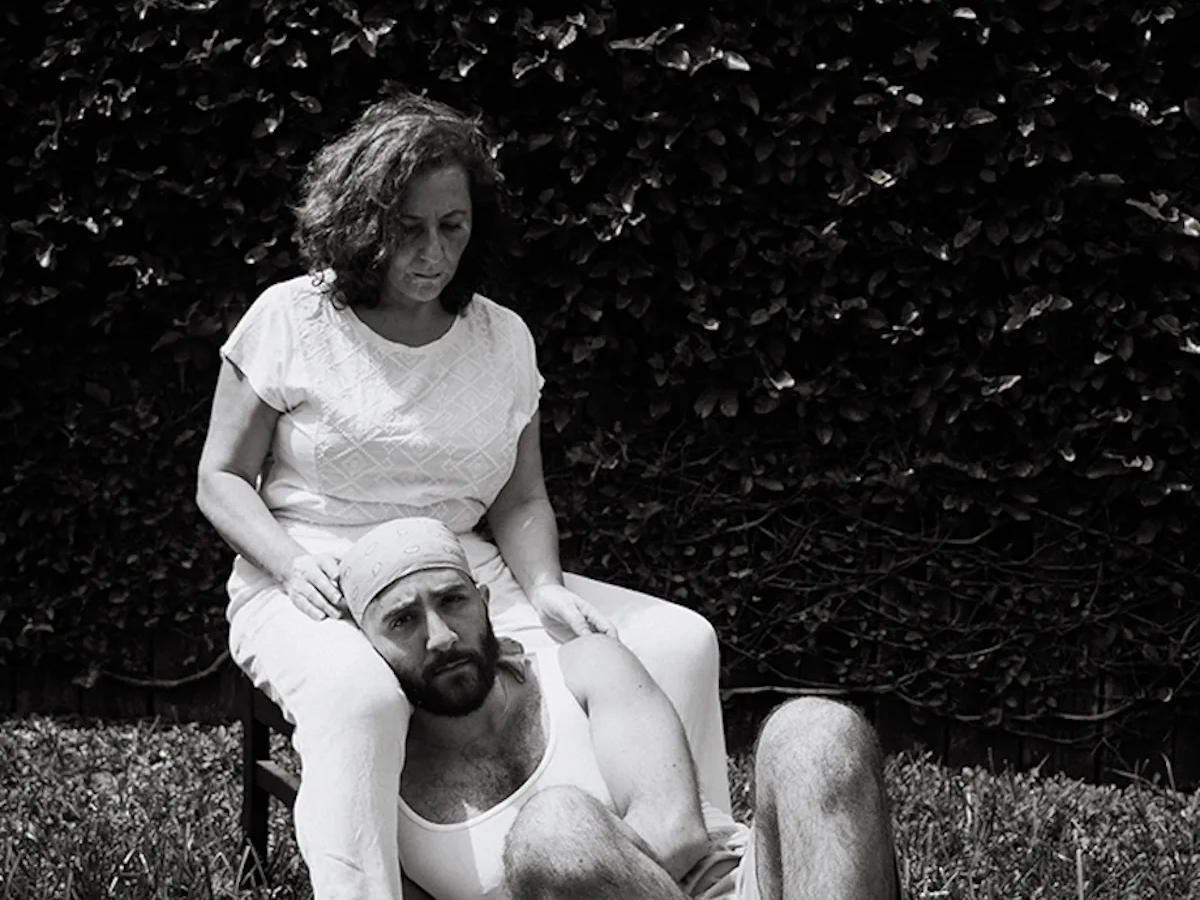
[ad_1]

MIAMI — In The Poetics of Space, Gaston Bachelard’s 1958 treatise on architecture and memory, the philosopher wrote, “Memories of the outside world will never have the same tonality as those of home and, by recalling these memories, we add to our store of dreams; we are never real historians, but always near poets.” What happens when home traverses miles — when it’s caught in the sway between one’s homeland and the land one makes a home of? What if writing poetry is just as urgent as recording history?
The multidisciplinary artist Elias Rischmawi lets the past and present speak to each other; they are both historian and poet. A Memory of Love & Loyalty, their ongoing collection of photographic portraits, family heirlooms, and restored family photographs, has been lovingly curated into a public exhibition at Tunnel Projects this week. The images and objects were made largely in Beit Sahour, Palestine, the ancestral homeland of Rischmawi’s family, as well as the places they’ve emigrated: Chile, Peru, Michigan, and Miami, Florida. The project’s title, which reads like a short poem, references the artist’s sido’s (grandfather) signature, written at the end of his missives and on the backs of photographs.

Rischmawi’s sido knew something about the way time makes mementos of the quotidian, how it alchemizes household essentials into treasures. He’s featured in a photographic portrait, “Elias Ghattas Rischmawi, Beit Sahour” (2019), made by Rischmawi during the artist’s first visit (and their grandfather’s last) to Palestine. In the image, he holds a jewelry box he’d carved for his sister decades before; he smiles tearfully, stunned the family never let it go. In a nearby self-portrait, the artist rests in their mother’s lap. The resemblance between the two is uncanny, their love palpable. It’s positioned next to a photo of a painting by an unnamed local artist from Chile, a work that has since been lost to time; in this work, Rischmawi’s mother is the nurtured one, cuddled into the neck of her grandmother, who knits a Palestinian flag. A red keffiyeh is the background for “Fabric of Time” (1910s–2024), a collage of present-and-past photographs: Rischmawi’s portrait of their grandmother, just as elegant as she is an archival photo from her adolescence; an image of the fields of Beit Sahour, circa early 1900s, lush and blooming — Rischmawi’s families are Bedouin folk — placed alongside a newer image of the same fields, visibly reshaped by the Israeli Occupation but no less beautiful. Arbitrary borders are no match for even one family’s love of their land.
All memories are worthy of such preservation, and especially those at risk of deliberate erasure. The oppressor attempts to prolong his destruction, stretch it over centuries: eliminate these generations today, so their children won’t remember them tomorrow. It’s their most insidious cruelty and their biggest failure. Love perseveres, and preserves. Four generations of Rischmawi’s family are depicted in “Family Portrait, Beit Sahour” (1920s): stoic elders, children clearly eager to rush off once the shutter clicks. The photo was worn with time; the artist digitized it, sharpened its blurs, brightened its dark spots. It’s captioned: “When they say it was ‘a land with no people,’ I show them this.” Rischmawi has subverted the famous aphoristic falsehood into poetry, into truth.




Elias Rischmawi: A Memory of Love & Loyalty continues at Tunnel Projects (300 SW 12th Avenue, Miami, Florida) through May 23. The exhibition was organized by the gallery.
Related
[ad_2]